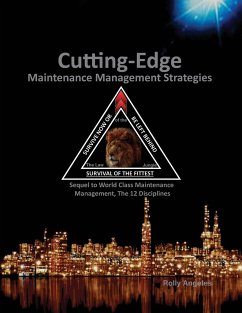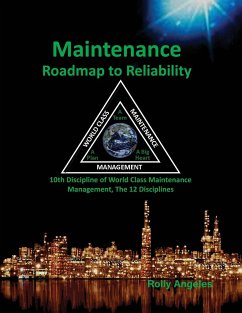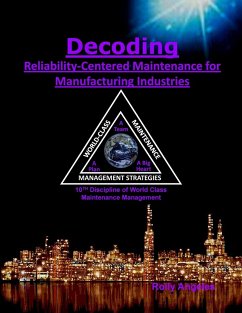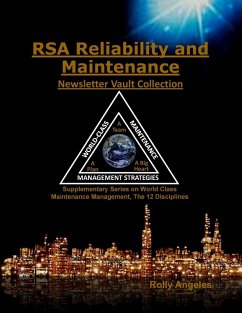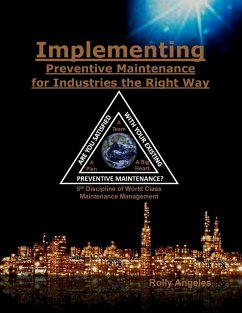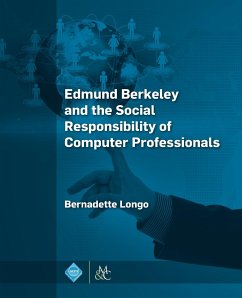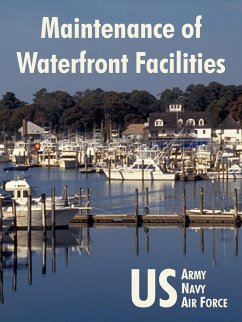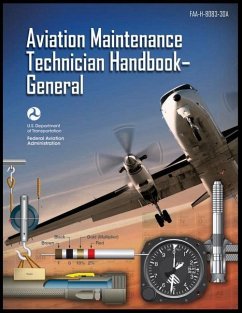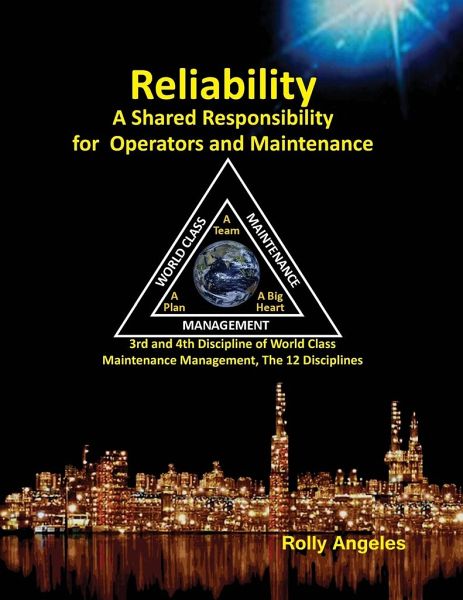
Reliability - A Shared Responsibility for Operators and Maintenance
3rd and 4th Discipline of World Class Maintenance (The 12 Disciplines
Versandkostenfrei!
Versandfertig in 1-2 Wochen
63,99 €
inkl. MwSt.

PAYBACK Punkte
32 °P sammeln!
This is the 3rd of a series of books on World Class Maintenance Management which covers the partnership between operators and maintenance in industries and why this is important. For as long as operators and maintenance in industries remain a separate function, Industries will continue to be reactive. My goal is to reach out to industries and convince them that these two cannot co-exists without each other and that it is time for both operators and maintenance to finally work together to improve not only the productivity but also the Reliability of their equipment and assets. Separating these ...
This is the 3rd of a series of books on World Class Maintenance Management which covers the partnership between operators and maintenance in industries and why this is important. For as long as operators and maintenance in industries remain a separate function, Industries will continue to be reactive. My goal is to reach out to industries and convince them that these two cannot co-exists without each other and that it is time for both operators and maintenance to finally work together to improve not only the productivity but also the Reliability of their equipment and assets. Separating these two only creates feuds and friction between them. In most cases, the problems in industries remain deeply rooted in their organization, from how their organization was structured, their policies, procedures they wrote, and the rules they imposed upon their employees. This book may sound contradictory to many of the policies industries imposed, and all I ask from the reader is to finish reading this book so that the reader can understand my reasons behind the contradiction. Some highlights of this book include: -Why Operators are Important in the Reliability Strategy - What Maintenance is all About - Survey on Top Problems of Preventive Maintenance Revisited 2018 - Why Preventive Maintenance cannot prevent "ALL" failures - Why Safety cannot be First - Operations and Maintenance - Will the Feud Ever Stop? - Reducing Human Errors in Maintenance - Why Operations and Maintenance Went their Own Separate Ways - Understanding Human Errors - The Common Thing RCM and TPM Both Believes - Strengthening Operator and Maintenance Partnership - Detailed Guidelines in Implementing 7 Steps of Autonomous Maintenance - Tips in Implementing Autonomous Maintenance - Detailed Guidelines in Implementing the 4 Phases of Planned Maintenance - Tips in Implementing Planned Maintenance - Why Do Most RCM Initiatives Fail? - Detailed Guidelines in Implementing RCM Analysis for Equipment - Tips in Implementing the RCM Analysis - Detailed Guidelines on How to Perform Root Cause Failure Analysis Probe - Tips in Implementing Root Cause Failure Analysis - Guidelines in Conducting Equipment FMEA/FMECA - Tips in Implementing FMEA/FMECA - Small Problems matters most - The Biggest Missing Link in Any Reliability Strategy - Changing the Image of the Maintenance Function - It Will Definitely Take Time for Industries to Accept - The Separation Needs to End, and a Partnership Needs to Begin - Managing Human Errors in Maintenance - How to Strengthen Operators and Maintenance Partnership - Tips and Guidelines in Implementing TPM Focused Improvement and many more. One of the biggest problems in most industries is the separation between both operators and maintenance. Due to this, operators just remain switch flickers and are frequently provided with a job description to operate the equipment. This book explains that operators are always the first line of defense on any equipment-related failures and breakdowns since they are the closest people that will experience the failure first before maintenance. Operators need to understand the earliest symptoms of failures. One sentiment from maintenance is that if breakdowns happen simultaneously, what they think is that they are undermanned. Maintenance people are not undermanned; it is simply because operators are not involved in the shared responsibility of doing maintenance.





